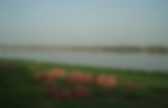

PDF/A-1. Un article de Wikipédia, l'encyclopédie libre. PDF/A-1 est une version standardisée ISO du Portable Document Format, ou PDF, un format propriétaire documenté. Il a été mis au point par la société Adobe Systems et son usage est très répandu pour conserver et échanger des documents numériques. Le principal avantage de ce format est que les fichiers au format PDF/A-1 sont fidèles aux documents originaux : les polices, les images, les objets graphiques et la mise en forme du fichier source sont préservés, quelles que soient l'application et la plate-forme utilisées pour le créer. Description[modifier | modifier le code] La spécification PDF/A-1 a été publiée par l'ISO et est utilisée par les organismes de normalisation du monde entier pour garantir la sécurité et la fiabilité de la diffusion et des échanges de documents électroniques. Les sphères publique et privée ont massivement adopté ce format pour simplifier les échanges de document. PDF/A-1 est basée sur le format PDF v1.4.
Academics’ Views On and Uses of Wikipedia | gnovis. Abstract: Web 2.0 technologies bring both opportunities and challenges to our formalization of collective knowledge and its use. The collective generation of knowledge without the control of a central authority has raised discussions in academia over the validity and the reliability of the knowledge generated. An online encyclopedia, Wikipedia, is central to some of these discussions.
In this paper, I discuss academics’ views on and uses of Wikipedia as an academic source. A semi-structured interview protocol was used to collect data from a purposively selected group of graduate students and university faculty. Purpose The purpose of this study is to explore academics’ views on and use of “Wikipedia” as an academic resource. Introduction Developments in communication technologies have yielded to innovative modes of interactions ranging from basic chat rooms to Wiki tools. Wikipedia Wikipedia offers articles collectively generated by millions of users in an extensive variety of subjects. A Stand Against Wikipedia. As Wikipedia has become more and more popular with students, some professors have become increasingly concerned about the online, reader-produced encyclopedia.
While plenty of professors have complained about the lack of accuracy or completeness of entries, and some have discouraged or tried to bar students from using it, the history department at Middlebury College is trying to take a stronger, collective stand. It voted this month to bar students from citing the Web site as a source in papers or other academic work. All faculty members will be telling students about the policy and explaining why material on Wikipedia -- while convenient -- may not be trustworthy. "As educators, we are in the business of reducing the dissemination of misinformation," said Don Wyatt, chair of the department. There was some discussion in the department of trying to ban students from using Wikipedia, but Wyatt said that didn't seem appropriate. "I understand what their concerns are. College: Gould Library: Using Wikipedia.
If your students have 'Googled' any topic recently, they've probably found links to a website called Wikipedia near the top of their results list. Wikipedia is a free online encyclopedia that differs from other encyclopedias in a significant way: along with reading the articles in Wikipedia, anyone can add or edit articles however they like. According to their website, Wikipedia was created in 2001 and has since grown to be one of the largest sites on the web, passing one million entries in the English-language version of the encyclopedia in March of 2006. It is a collaborative effort with articles written by individuals from around the world using wiki software that allows content to be added or changed by anyone. As a result, Wikipedia is a dynamic work that is always growing, always changing.
Limitations and Advantages of Wikipedia Because anyone can add or change content, there is an inherent lack of reliability and stability to Wikipedia. Appropriateness as a Source Citing Wikipedia. Simon Waldman on Wikipedia's success | Technology. There have been no shortage of insane, over ambitious ideas on the internet. Most of them never make it further than the pub they are conceived in. Some generate hype but quickly fall flat on their face. Others survive, but prove to be minnows rather than the giants they set out to be. However, every so often, one sneaks through. Wikipedia is one of the rare ones that made it. Even by the admission of its founder, the 38-year-old technology entrepreneur Jimmy Wales, it was a "completely insane idea": a free online encyclopedia that anyone can contribute to and anyone can edit. There is no editor, no army of proof readers and fact checkers; in fact, no full-time staff at all. There are dozens of reasons why it shouldn't work, and it is still far from perfect, but in less than four years, it has grown to have more than 1 million entries written in 100 languages from Albanian to Zulu.
The current Encyclopedia Britannica has 44m words of text. But, this isn't always the case.